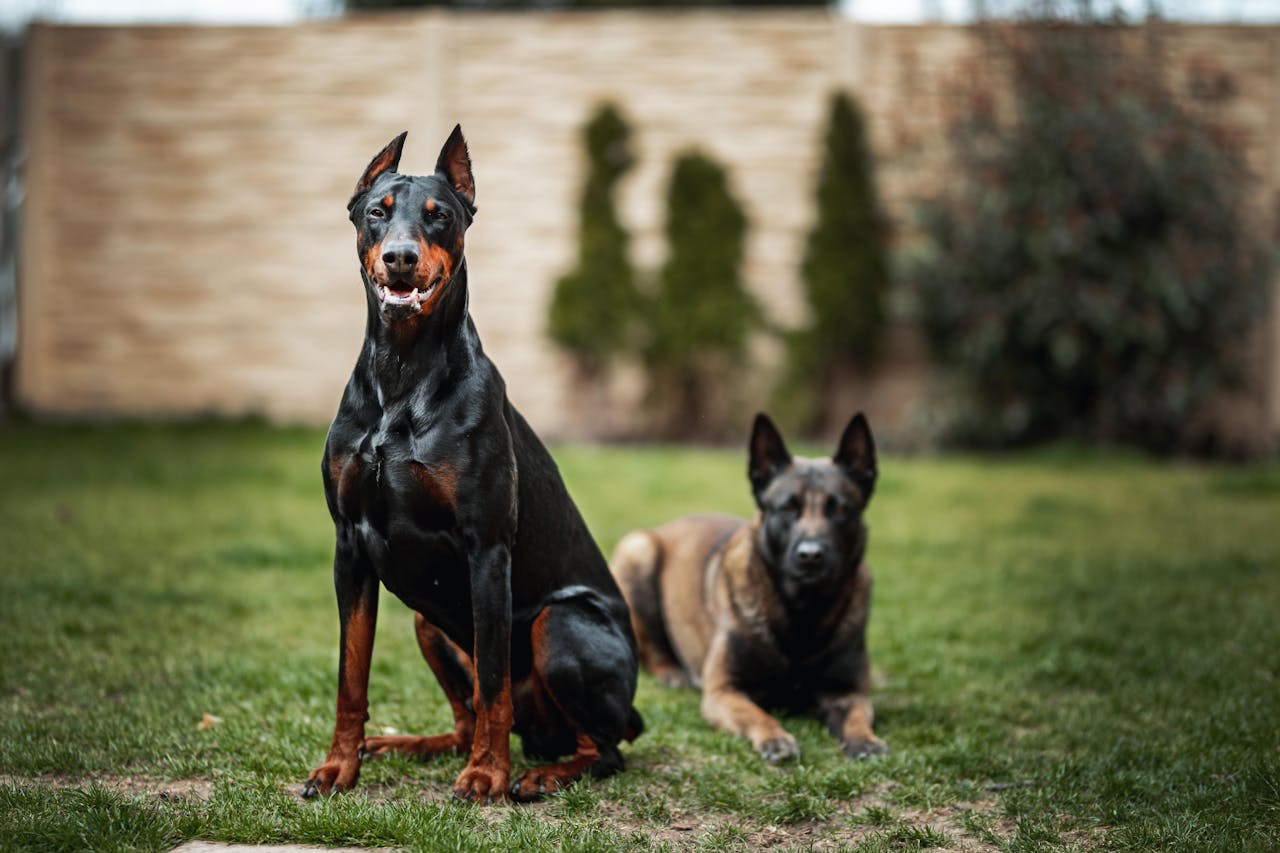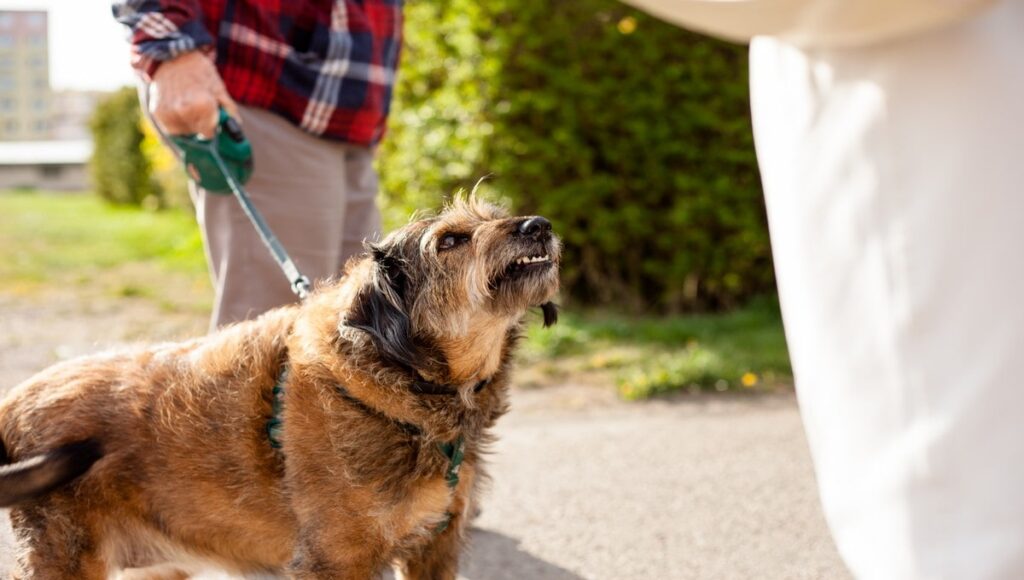Content of the article
The Doberman is a breed known for its elegant and muscular build, as well as loyalty and devotion to its owner. These dogs are distinguished by high intelligence, fearlessness and excellent watchdog qualities. However, without proper upbringing and training, the Doberman can become unruly and aggressive.
We recommend that you familiarize yourself with our guide: Are Dobermans dangerous?
Competent upbringing and training of a Doberman will not only ensure the safety of others, but also allow to reveal the full potential of this wonderful breed. An obedient and socialized dog will become a reliable companion that will bring joy to its owner for many years.
The purpose of this article is to give comprehensive recommendations on how to raise a Doberman. By following our advice, you will be able to raise a balanced, controlled and friendly dog that will be the pride of its owner.
Features of the Doberman breed
Dobermans are amazing creatures that combine elegance, strength and bravery. Their character can be described as fearless, loyal and energetic. However, these qualities require proper upbringing and socialization from an early age.
Dobermans are distinguished by high intelligence and a desire to please the owner. With proper training, they can master many commands and tricks, but without early training and socialization, their energy and zeal can turn into stubbornness and disobedience.
Early socialization is extremely important for the formation of a balanced temperament in a Doberman puppy. Familiarity with different people, animals, sounds and situations will help avoid the development of excessive timidity or aggression in adulthood.
It is worth remembering that Dobermans were bred as guard and guard dogs. Without proper training and socialization, they can show dangerous aggression towards strangers or other animals. That is why it is so important to educate them from an early age to be confident, obedient and friendly to the world around them.
How to properly train a Doberman?
Doberman training should begin at an early age, as soon as the puppy is in your home. The earlier you start teaching basic commands, the easier the process will be and the more obedient the dog will grow.
The foundation of successful Doberman training is the use of positive reinforcement. Encourage the desired behavior with treats, toys, and praise. Dobermans love to please their owner and seek to be rewarded for their efforts.
However, do not forget about consistency and patience. Dobermans are intelligent dogs, but they need time to understand what is wanted from them. Regular, short workouts will bring much more benefit than infrequent but long sessions.
Start with basic commands, such as "sit", "lie", "to me" і "near". These commands will lay the foundation of obedience and become the foundation for later learning of more complex tricks and skills. Do not forget to praise and encourage your pet for each successfully performed action.
Accustoming to a leash and collar is an important stage in training a Doberman. You should start from an early age, gradually introducing the puppy to these attributes.
First, allow your puppy to wear the collar for short periods of time at home so that it gets used to its weight and feel. Praise and encourage with treats when he behaves calmly in the collar.
Then you can move on to the leash. First, let the puppy sniff and play with it so that it perceives the leash as something positive. Gradually increase your leash time at home by reinforcing good behavior.
When the puppy gets used to the collar and leash at home, you can start taking short walks outside. Praise and reward with treats every time your Doberman obeys commands and walks calmly next to you.
Doberman socialization
Socialization — one of the key aspects of raising a balanced and friendly Doberman. It should be started as early as possible, literally from the first weeks of the puppy's life.
Gradually introduce the pet to new people, animals, sounds and situations. Do this in a calm and safe environment, encouraging the puppy's curiosity and confidence with treats and praise. Do not force events - let the baby approach and sniff new objects at his own pace.
Attending socialization and training classes is a great way to expand your Doberman's social circle. Here he will be able to interact with other puppies and people in a controlled manner under the supervision of an experienced instructor. Such classes not only socialize the pet, but also lay down basic training skills.
It is important that every experience the puppy has with new people, animals and situations is positive. Do not leave the baby alone with a stressful factor. Intervene and distract him with play or treats at the first signs of fear or aggression. Remember that negative impressions at this stage can seriously complicate further socialization.
Regular and properly structured socialization will make it possible to raise a Doberman who will feel confident and at ease in any environment. Such a dog will be an ideal companion for an active owner.
It is useful to know: Socialization and adaptation of an adult dog or puppy.
Exercises for the development of obedience
Even after your Doberman has mastered the basic commands, the work on obedience cannot be stopped. Constant practice in different places and situations will help consolidate skills.
Practice already learned commands in a new environment: in a park, on the street, visiting friends. Change the intonation, gestures and distance between you and the dog. This will teach the Doberman to obey in all conditions, despite distractions.
Include in training games and exercises that develop concentration and self-control of the pet. Ask him to sit still while you walk around, or ask him not to touch a treat from your palm until you give him permission. Praise for every second of good behavior.
Remember the importance of repetition. Regularly return to the material already covered so that the skills do not "rust". Change the sequence of practiced commands so that the dog does not anticipate your actions.
Persistent obedience training will form a permanent obedience skill in your Doberman. He will obey you regardless of external stimuli, and this, in turn, will ensure the safety of others and the dog himself.
Solving problem behavior
As with any large and energetic breed, Dobermans can develop behavioral problems if their energy and needs are not properly channeled. The most common of them are aggression, excessive liveliness, destructive behavior and frequent barking.
Aggression can be manifested in relation to strangers, dogs or owners. Its causes are most often insufficient socialization, fear, territory protection or resource aggression. Excitement and destructive behavior, such as biting or damaging furniture, are usually caused by boredom and lack of exercise.
Solving behavior problems requires addressing their root cause. An aggressive dog will need increased socialization and a course of special classes. A lively and destructive person needs to be provided with a sufficient burst of energy through physical exercises and games.
Worth knowing:
- Aggression in dogs - what is the cause of the problem and how to solve it?
- Dog aggression: How does fear shape the behavior of pets?
- Why is your dog aggressive and how to stop it?
Use ignoring and attention switching to stop unwanted behavior. Never yell at or physically punish your Doberman - this will only make the problem worse. Instead, distract him with commands, toys, or treats as soon as you notice the first signs of aggression, hyperactivity, or destruction.
In difficult cases, do not hesitate to seek help from professional dog trainers. The specialist will develop an individual program to correct the problematic behavior of your pet.
Remember, patience and consistency are the keys to success in solving any behavioral problems in a Doberman. With time and the right approach, even the most negative behavior can be corrected.
Exercise and activity
The Doberman's need for exercise can be compared to the requirements of an athlete. They need long walks, runs and intense games every day. The minimum is two hours of active outdoor activity per day, divided into several short sessions.
Running sports such as agility, Frisbee or canicross will be ideal for a Doberman. Swimming, hiking and cycling are also suitable. Any games related to chasing, fetching or chasing will bring a lot of pleasure to your energetic dog.
Regular physical activity will not only provide a burst of accumulated energy, but will also be beneficial for the general health of the pet. An active lifestyle will strengthen the muscles and cardiovascular system, help control the Doberman's weight and improve the dog's mood.
Lack of exercise often causes bad behavior and the development of various destructive habits in Dobermans. A lethargic, bored dog will seek an outlet for energy in unwanted actions: barking, gnawing on things, etc. Provide your four-legged friend with sufficient daily exercise — and behavior problems will disappear by themselves.
Conclusions on Doberman training
Doberman training is an exciting but patient process. This breed is characterized by high intelligence, energy and need for physical activity. Without proper training and socialization, a Doberman can become a problematic and even dangerous dog.
The key to success is early learning, use of positive reinforcement, consistency and endless patience. Get the puppy used to basic commands, socialize him in different situations, practice obedience through games and exercises. Don't forget about the importance of physical activity for your pet's burst of energy.
Remember that training and upbringing Doberman — a process that does not have an end point. It is necessary to constantly consolidate skills, introduce the dog to new situations, correct behavior. This is the only way you can raise a balanced, reliable and controlled pet.
Do not give up if difficulties arise. Ask for help from professional canine experts, and together you will definitely find a solution to the problems.
Pets in 2025: inspiration every day.
⚠️ We suggest that you read and take note of all the conclusions on our portal at your discretion. Do not self-medicate! In our articles, we collect the latest scientific data and the opinions of authoritative experts in the field of health. But remember: only a doctor can diagnose and prescribe treatment.
The Portal is intended for users over the age of 13. Some materials may not be suitable for children under the age of 16. We do not collect personal data from children under the age of 13 without parental consent.We have a small request. We strive to create quality content that helps care for pets, and we make it available for free to everyone because we believe that everyone deserves accurate and useful information.
Advertising revenue only covers a small portion of our costs, and we want to continue to provide content without the need to increase advertising. If you found our materials useful, please support us. It only takes a minute, but your support will help us reduce our dependence on advertising and create even more useful articles. Thank you!


